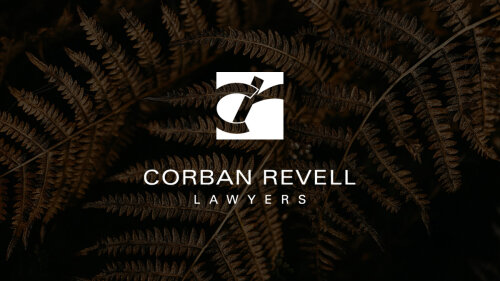Best Lawsuits & Disputes Lawyers in New Zealand
Share your needs with us, get contacted by law firms.
Free. Takes 2 min.
Or refine your search by selecting a city:
List of the best lawyers in New Zealand
About Lawsuits & Disputes Law in New Zealand
Lawsuits and disputes in New Zealand are governed by a combination of statute law, common law, and specific regulations. The legal system emphasizes fair resolution of conflicts through established procedures and aims to ensure justice and equity. Disputes may arise in various contexts, including business relationships, personal issues, or contractual disagreements. The New Zealand legal system provides several forums for resolving disputes, including courts and tribunals, alongside alternative dispute resolution mechanisms such as mediation and arbitration.
Why You May Need a Lawyer
There are several common situations where an individual or organization may require legal assistance in lawsuits and disputes:
- Contractual Disputes: Disagreements related to the terms, execution, or breach of a contract.
- Property Disputes: Conflicts over real estate boundaries, ownership, or tenancy issues.
- Business Conflicts: Disputes between businesses or within partnerships that may involve complex commercial interests.
- Employment Disputes: Issues between employers and employees, including wrongful dismissal or employment contract violations.
- Family Disputes: Resolutions needed in family law matters such as divorce, custody, or asset division.
- Debt Recovery: Pursuing unpaid debts or addressing unjustified claims for payment.
In these and other scenarios, a lawyer can provide crucial assistance in navigating legal processes, advocating for your rights, and working towards a favorable outcome.
Local Laws Overview
New Zealand's legal framework for disputes includes several key elements:
- The District Court and High Court handle civil disputes depending on the claimed amount and complexity of the case.
- The Disputes Tribunal provides a cost-effective venue for minor claims, typically under NZ$30,000.
- Consumer Guarantees Act and the Fair Trading Act protect consumer rights against unfair practices.
- Employment Relations Act governs resolution in employment matters through the Employment Relations Authority or Employment Court.
- Resource Management Act and related legislation cover environmental and land-use disputes.
- Alternative dispute resolution methods, like mediation and arbitration, are supported and encouraged by the courts to alleviate caseload and provide faster resolution.
Frequently Asked Questions
What should I do if I have a dispute with a neighbor?
Begin by talking to your neighbor to resolve the issue amicably. If this fails, consider mediation. Legal action through the Disputes Tribunal or District Court is a last resort.
How can I resolve a business contract dispute without going to court?
Mediation or arbitration can be effective for business disputes. These are less formal, faster, and often more cost-effective than court proceedings.
Can I represent myself in court?
Yes, self-representation is allowed, but having legal expertise on your side might lead to a more favorable outcome, especially in complex cases.
What is the cost of filing a lawsuit?
Costs vary depending on the court and complexity of the case. It's recommended to consult with a lawyer to get an estimate that includes potential legal fees.
How long do such disputes typically take to resolve?
The duration can vary widely; simple cases may conclude in months, whereas complex disputes can take years, particularly if they go to trial.
Are arbitration results binding?
Yes, arbitration generally results in a binding decision unless both parties agree otherwise. It's a recognized means of dispute resolution in New Zealand.
How can I enforce a court judgment?
If a party doesn’t comply with a judgment, enforcement options include attachment orders or seizing assets. Legal advice is often necessary to pursue these actions effectively.
What options do I have if I lose a case?
You may be able to appeal the decision if you believe there was an error in law or fact. Legal advice is crucial to assess the viability of an appeal.
What if the other party fails to appear in court?
If the other party doesn’t show up, the court may proceed without them and issue a default judgment in your favor.
Can disputes be resolved online?
Yes, some platforms offer online dispute resolution services, particularly for smaller, straightforward claims, reflecting an increasing trend towards digital legal services.
Additional Resources
- Community Law Centres: Provide free legal advice and assistance across New Zealand.
- Legal Aid Services: Offer financial assistance for those who cannot afford legal representation.
- New Zealand Law Society: A comprehensive resource for locating qualified lawyers and understanding legal processes.
- Citizen’s Advice Bureau: Offers guidance and advice on various legal matters including disputes.
- Ministry of Justice: Information on courts, legal aid eligibility, and justice system processes.
Next Steps
If you need legal assistance in lawsuits and disputes, consider taking the following steps:
- Identify the Nature of Your Dispute: Clearly outline your issue and gather any relevant documentation or evidence.
- Consult with a Lawyer: Seek a lawyer who specializes in your area of need to discuss your options and potential strategies.
- Explore Alternative Dispute Resolution: Consider whether mediation or arbitration might be appropriate for your situation.
- Understand Costs: Discuss potential costs with your lawyer and understand any legal aid eligibility you might have.
- Pursue Legal Action if Necessary: Should informal resolution fail, your lawyer can guide you through the formal legal processes available.
By understanding your options and seeking professional guidance, you can navigate the complexities of New Zealand’s legal system more effectively.
Lawzana helps you find the best lawyers and law firms in New Zealand through a curated and pre-screened list of qualified legal professionals. Our platform offers rankings and detailed profiles of attorneys and law firms, allowing you to compare based on practice areas, including Lawsuits & Disputes, experience, and client feedback.
Each profile includes a description of the firm's areas of practice, client reviews, team members and partners, year of establishment, spoken languages, office locations, contact information, social media presence, and any published articles or resources. Most firms on our platform speak English and are experienced in both local and international legal matters.
Get a quote from top-rated law firms in New Zealand — quickly, securely, and without unnecessary hassle.
Disclaimer:
The information provided on this page is for general informational purposes only and does not constitute legal advice. While we strive to ensure the accuracy and relevance of the content, legal information may change over time, and interpretations of the law can vary. You should always consult with a qualified legal professional for advice specific to your situation.
We disclaim all liability for actions taken or not taken based on the content of this page. If you believe any information is incorrect or outdated, please contact us, and we will review and update it where appropriate.
Browse lawsuits & disputes law firms by service in New Zealand
New Zealand Attorneys in related practice areas.
Browse lawsuits & disputes law firms by city in New Zealand
Refine your search by selecting a city.
















